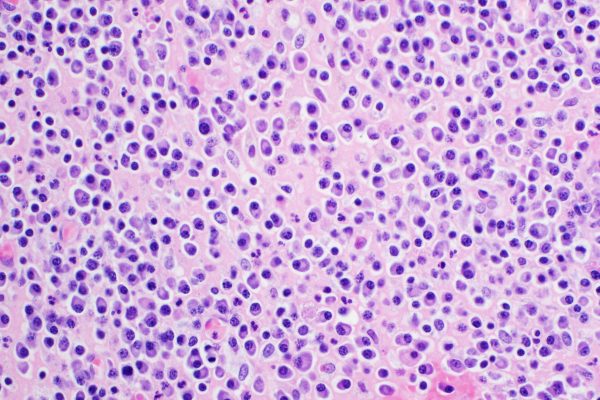
Previously, the primary analysis of the CASTOR trial demonstrated that adding daratumumab to bortezomib and dexamethasone regimen (D-Vd) significantly prolongs progression-free survival (PFS) of patients with relapsed/refractory multiple myeloma (RRMM). The final survival analysis of this trial, recently published in the Journal of Clinical Oncology, shows that D-Vd significantly improves survival as well in these patients.
After a median follow-up of 7.4 months, the primary analysis of the CASTOR trial showed that daratumumab plus bortezomib and dexamethasone (D-Vd) significantly prolonged the progression-free survival (PFS) compared to bortezomib and dexamethasone (Vd) alone in patients with relapsed or refractory multiple myeloma (RRMM). The updated efficacy and safety results at the final analysis for overall survival were recently published in the Journal of Clinical Oncology.
The phase 3 CASTOR trial enrolled patients with RRMM who had progressive disease during or after completion of their last regimen, received ≥1 prior line of therapy, and had a partial response or better to ≥1 previous line of therapy. In total, 498 patients were randomly assigned (1:1) to Vd (up to eight cycles) with or without daratumumab (N= 251 and 247, respectively). After the positive primary analysis and protocol amendment, patients receiving Vd were offered daratumumab monotherapy after disease progression. PFS was the primary efficacy endpoint, with overall survival (OS) as a key secondary objective.
After a median follow-up of 72.6 months, a significant OS benefit was observed with D-Vd over Vd (HR[95%CI: 0.74[0.59-0.92]; p =0.0075), with a median OS of 49.6 and 38.5 months with D-Vd and Vd, respectively. Prespecified subgroup analyses demonstrated an OS advantage with D-Vd vs. Vd in most subgroups, including for patients age ≥65 years and patients with one or two prior lines of therapy, International Staging System stage III disease, high-risk cytogenetic abnormalities, and prior bortezomib treatment. Remarkably, OS benefit was most pronounced in patients who received one prior line of therapy (HR[95%CI]: 0.56[0.39 to 0.80]). The most common grade 3/4 treatment-emergent adverse events with D-Vd vs. Vd were thrombocytopenia (46.1% vs. 32.9%), anaemia (16.0% vs. 16.0%), neutropenia (13.6% vs. 4.6%), lymphopenia (10.3% vs. 2.5%), and pneumonia (10.7% vs. 10.1%).
In conclusion, D-Vd significantly prolonged OS in patients with RRMM, with the greatest OS benefit observed in patients with one prior line of therapy. These results, together with the OS benefit observed with daratumumab plus lenalidomide and dexamethasone in the phase III POLLUX study, demonstrate for the first time an OS benefit with daratumumab-containing regimens in RRMM.
Reference